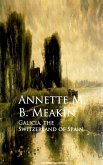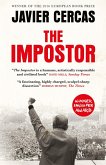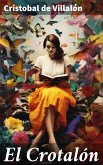In "Letters from Spain," Joseph Blanco White presents a thoughtful and introspective account of his experiences in Spain during the early 19th century. Written in the epistolary style, these letters blend vivid narrative with philosophical musings, capturing the essence of Spanish culture, politics, and society. The literary context of this work is enriched by the Romantic movement, characterized by an emphasis on individualism, emotional depth, and a critique of social norms. Blanco White'Äôs evocative prose and keen observations provide readers with a unique lens through which to view the complexities of Spanish life, as well as his own existential struggles reflecting the broader tensions of the period. Born in Spain to a family of mixed descent, Blanco White's multicultural background and liberal political beliefs shaped his worldview. His eventual exile from Spain due to political unrest and religious intolerance deeply influenced his writing. Experiencing the clash between tradition and modernity, his letters reveal a profound yearning for identity and understanding, drawing on his encounters to forge a narrative that transcends cultural barriers. Readers seeking both an engaging travelogue and a deep, contemplative exploration of Spain'Äôs societal undercurrents will find "Letters from Spain" an illuminating read. This work invites readers to reflect on the interplay between culture and identity, offering enduring insights into the human experience.
Dieser Download kann aus rechtlichen Gründen nur mit Rechnungsadresse in A, B, BG, CY, CZ, D, DK, EW, E, FIN, F, GR, H, IRL, I, LT, L, LR, M, NL, PL, P, R, S, SLO, SK ausgeliefert werden.









